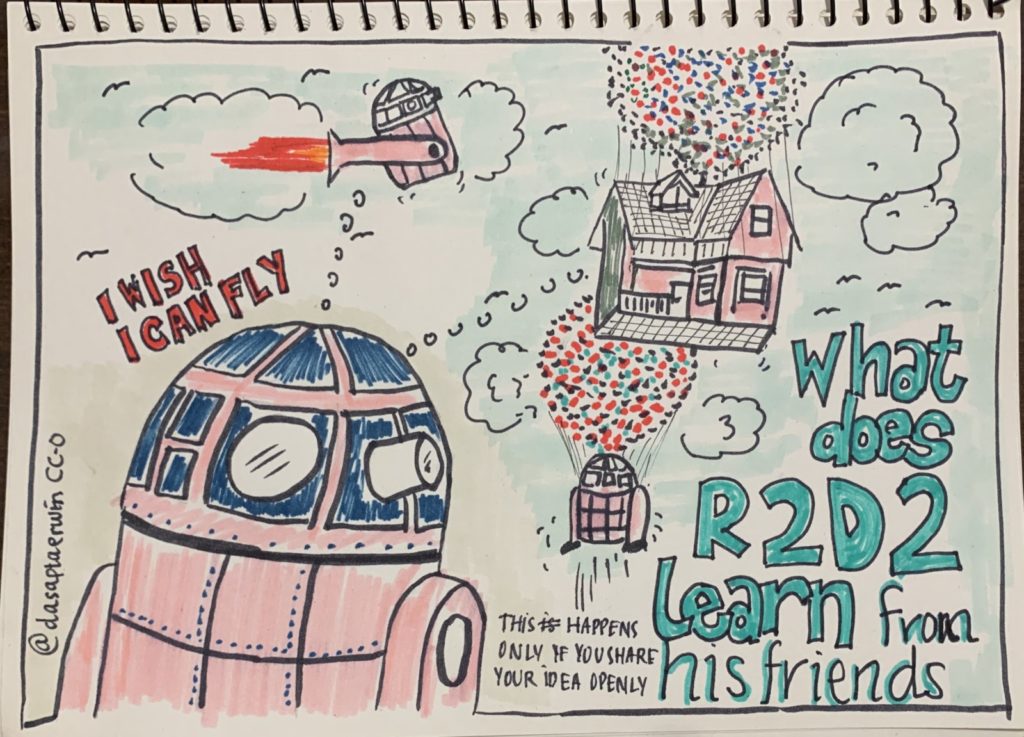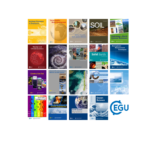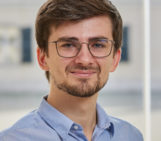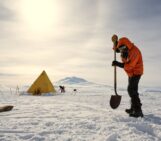
As Hedding et al. (2020) indicate, it is “not business as usual” for higher education across the globe. There are many testimonies by scientists who are struggling to work while their children are stuck at home during the coronavirus pandemic (Langin, 2020). Indeed, it is very complex to stay at home to raise and home-school kids and remain productive as an academic while living through a pandemic. Challenges are diverse and often unique to each person. Numerous examples can be found on social media platforms. Many include toys around piles of papers, to Kids TV shows or music. More famous examples are the apparitions during Zoom calls reminiscent of ghostly TV shows. Many of them make us laugh, but often not when it happens to us at home while trying to work!
The “funny” antics aside, lockdown has strained individuals and organizations alike. It has led many academics to become even more intensively involved in their work in an attempt to remain productive and carry their projects forward. While universities implement the required health and safety measures necessary to reopen campuses, many staff and students may be faced with a set of psychosocial risks and delayed lockdown effects. Continuous and deep sacrifices may be poorly recognized, especially since they were often made at a distance and out of sight. Prolonged isolation may result in difficulties for some people to reintegrate into the work environment. The severity of these situations might lead to organizational or personal difficulties. Some are collective and related to work, while others are more personal. Regardless, these various difficulties can translate into forms of exhaustion, demotivation, depression or even burn-out. Moreover, these elements are sometimes combined with vulnerabilities linked to the mental and physical state of everyone dependent on the higher education system (depending on risk factors, disease experiences, the care or family context consequences; e.g. Pourret, 2020).
While many of us are facing similar challenges, academics in the Global South face additional pressures which academics in the Global North take for granted such as reliable and consistent access to electricity and internet. In South Africa, citizens have, for several years, experienced scheduled rolling power outages to ensure that the entire power grid does not collapse across the country. This would be unheard of in France or many other countries in the “North”. Add that to raising kids and home-schooling complexities, it makes things extremely difficult to remain productive or even positive. In Indonesia, similar challenges are encountered. The islands of Sumatra and Java are the only two islands with good to very good access to the internet. This necessitates online learning be developed in a creative way, because not all lecturers and/or students may have an adequate access to mobile networks or supply of internet data quotas. One key strategy is to reduce live-streamed lectures, by sending presentation slides accompanied with voice recordings. These challenges may be even more severe in other parts of the Global South.
Another obstacle for work in academia is that it is still largely office based. Most documents are stored on office computers, some physical documents are kept in files on office shelves, libraries maintain a largely physical presence, even though there are many cloud storage services, textbooks and e-books are often not available remotely. None of these examples are important when one can freely visit university campuses under normal circumstances. In addition, closed networks on university campuses could not be accessed from home at the start of the pandemic. Even the University of South Africa, a mega open-distance learning institution in Africa, and ideally suited to address the challenges presented by the pandemic, was never designed to operate remotely and had to develop novel mechanisms to run its internal operations (Hedding et al., 2020).
In research, many field activities have been curtailed or even stopped. Research sites for earth science researchers are typically located in remote locations without crowds, but to reach these sites geoscientists still need to use public transportation that is, in many cases, crowded whether it be by land, air or water. As a result, researchers performance has and will continue to decline in the short term, particularly if research activities are based on primary data collection.
As a way to maintain productivity, some researchers are using secondary data, hoping to generate some innovative work. But this is hampered by the lack of publications or reports that include reusable supplementary raw data. There is still a perception that researchers are data owners. Thus, raw data is perceived to be “private” property, even though the research is publicly funded.

Sketchnote highlighting the importance of networking and Open Science drawn by Dasapta Erwin Irawan.
We are three Earth Scientists who advocate for Open Science and our collaboration strengthened during the pandemic. In this difficult time, the benefits of Open Science and specifically open access to journal articles and the use of preprints were revealed to academia and the general public. These trends are encouraging and bode well for their greater use and development in a changing world. At this time, all researchers should have a sense of togetherness or Ubuntu, an African philosophy which is often translated as “I am, because we are”. The principles of Open Science uphold human rights and Ubuntu that enable researchers to interact and solve common problems. These same principles endorse transparency and collaboration, and, therefore, may have an important role so that researchers can remain productive during and after this pandemic.
References
Hedding, D. W., Greve, M., Breetzke, G. D., Nel, W., and Jansen van Vuuren, B.: COVID-19 and the academe in South Africa: Not business as usual, South African Journal of Science, 116, 10.17159/sajs.2020/8298, 2020.
Langin, K.: The pandemic is hitting scientist parents hard, and some solutions may backfire, Science, doi:10.1126/science.caredit.abe1220, 2020.
Pourret, O.: Redefine success after lockdowns, Nature, 583, 646-646, 10.1038/d41586-020-02043-8, 2020.



